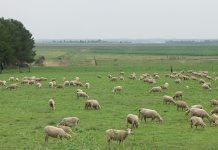Once you have moved onto your newly acquired farm, the first step is to implement a record keeping system hopefully designed prior to occupation so that valuable production time will not be lost. This system will guide your daily task-planning and goals. Your record keeping system should cover:
- Farm maps/field layouts.
- Crop lists with relevant input requirements, maintenance, harvesting and marketing planning.
- Budgets and cash flows.
- An asset register of fixed assets (such as buildings) and movable assets (such as tractors).
- Stock lists of spares, fertilisers, chemicals and fuel, to be adjusted every time something is used so that there’s a balance of stock to check. This helps with planning and protects against theft.
- Fuel sheets recording fuel use. Date and time vehicles are filled up and the hours/ kilometres should be recorded to keep a check on how much fuel is used per hour or kilometre for every vehicle.
- Daily labour allocation worksheet. Each worker is entered onto this sheet with his/her daily tasks, which are marked off when completed.
- Whenever money is spent, a slip should be obtained and retained.
- If something is sold, record it.
- Keep an incident book to record anything unusual that happens or any difficulties or problems experienced with labour. If ever there’s a labour dispute, this is good evidence for the CCMA. The book itself should have a hard cover and numbered pages.
- Workers or witnesses should sign incident entries.
- The following books are needed for financial records: main ledger, journal, cash book, petty cash book, creditors’ journal (who you owe money to) and debtors’ journal (those who owe you money). Most businesses now use computer programmes for bookkeeping, but a petty cash record book, for example, has to be hand-written. Your bank reconciliation will be done on a monthly basis in your cash book.
- Make sure your SARS registrations are in place – this includes VAT (if applicable), UIF and Workmen’s Compensation, which covers a worker getting injured on duty, or dying.
Without these administrative controls in place your business will be less likely to succeed.
Contact Susan Pletts at 082 572 3724, or [email protected].













